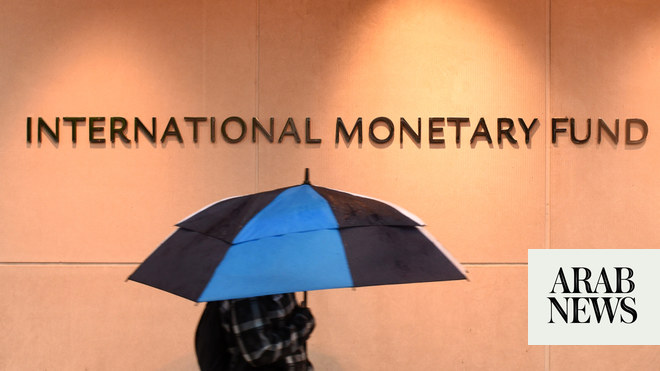
Good ties, cooperation, discussion and mutual respect are what Morocco shares with the International Monetary Fund, said Moroccan Finance Minister Mohamed Boussaid.
In his interview with Asharq Al-Awsat, Boussaid went into depth on the liquidity and credit arrangements concluded by Morocco in 2011 with the Fund.
“IMF-Moroccan relations go back in time and fall within the framework of the Funds functions,” said Boussaid.
Boussaid explained that strong ties are further backed with transformations in Morocco-- whether in the past, the present, or even in the future.
“Our relations with the Fund are good and normal, especially since we are not in a crisis situation, and we are not suffering from any crisis that requires the Fund’s intervention in our policies in general,” he said.
Morocco has managed to overcome difficult times without needing to withdraw from the IMFs liquidity line, added Boussaid.
The official also tackled the new wave of structural reforms in Morocco, the debate on the national development model and its weaknesses, and his vision to solve the problem of youth unemployment in both Morocco and the Arab region.
“Following the deterioration of our foreign currency reserves and experiencing repercussions of the global economic crisis, we have managed signing up for the Precautionary and Liquidity Line (PLL) arrangement in 2011.”
The PLL, which was introduced in 2011, provides financing to meet an actual or potential balance of payments needs of countries with sound policies and is intended to serve as insurance or help resolve crises under wide-ranging situations.
“For us, this is a kind of “insurance policy” gives Morocco the chance to withdraw from available balance under this line when the need arises.”
“During the first two years, 2011 and 2012, the balance of the liquidity and credit line was set at over $ 7.5 billion, but we did not withdraw any amount because we did not need to,” said Boussaid in his appraisal of national policy and reformation overcoming economic hardship.
Post-2012, Morocco renewed the agreement for another two years and reduced the balance to $ 5 billion. The other two years also passed without the North African state registering any withdrawals.
“For a third time, we renewed the agreement for another two years, but this time at only $ 3.5 billion--this agreement will end upcoming June 2018.”
In 2016, the IMF renewed Morocco’s two-year credit line at $3.5-billion to reassure its foreign lenders, investors and rating agencies, allowing it to tap international capital markets at more favorable borrowing terms.
With the arrangement soon coming to a close, Boussaid highlights that Morocco still has not tapped or made any drawings from the PLL arrangement.
“Morocco’s overall economic performance has continued to improve in 2015. Strong policy implementation has helped reduce fiscal and external vulnerabilities and significant progress has been achieved on reforms.
In an environment that remains vulnerable to important downside risks, continued efforts to move ahead with difficult but necessary reforms will be key for reducing the remaining vulnerabilities while promoting higher and more inclusive growth,” a 2016 IMF report cited the IMF Deputy Managing Director and Acting Chair of the Board Mitsuhiro Furusawa as saying.
“We did not use even one dollar of the amounts offered by the liquidity line because we did not need it to finance the treasury--which means that our relations with the IMF are not financial,” said Boussaid.
“It (the IMF) does not finance Morocco—but undisputedly, the PLL agreement played a role in fostering constructive dialogue with the IMF concerning consultation and in keeping track of many reforms that Morocco initiated.”
In 2012, Morocco’s government budget deficit stood at a staggering 7.6 percent of GDP-- government debt rose dramatically, averaging 3.5 percent of GDP in a year.
Boussaid said that in 2012, all the economic ‘red flags’ were up, leaving the government with no choice but to choose to lead the nation through a path of incremental reform which will help recover basic balances.
“In 2017, the budget deficit fell to 3.5 percent, and the National Treasury debt stabilized and experienced a slight decline. Foreign currency reserves rose and Morocco succeeded in limiting the current account deficit to under 4 percent.”
Morocco has been able to gradually restore balance compared to what was the case in 2012.
Addressing Morocco’s method in realizing reform, Boussaid said that the “recipe is simple”, and that it is to manage to achieve public finance reform while increasing support for social sectors and enhancing social cohesion.
“In the 2018 budget, we allocated more than 50 percent of government spending to social sectors.”
“In 2017 and 2018, the government employed 100,000 people in public sectors, including 55,000 in the education sector alone.”
The national fiscal balance recovery was gradually achieved by controlling expenditures and expanding premises of taxation.
Nevertheless, Boussaid says that the state has made a serious and active contribution to social and government investment sectors, which amounted to over $19.5 billion for 2017.
Boussaid said that the policies will carry through 2018 as well.
The more flexible currency system will boost GDP growth this year by 0.2 percent on top of the previous forecast of 3.2 percent, Boussaid had previously said.
Inflation will accelerate to 1.5 percent this year and the dirham move could add as much as 0.4 percent to it, he added.
Last year inflation was 0.2 percent, according to the High Planning Commission which collects economic data. GDP growth was 4 percent last year but officials have said a lower agricultural output due to less rain would weigh this year.
The budget deficit will be 3 percent in 2018, the minister said, down from 4 percent last year.
The more flexible exchange system will also have a positive impact on Morocco’s current balance as it would attract investment and guard the economy against shocks while facilitating exports, he said.
When asked whether a Eurobond issue was possible this year, Boussaid said that it is “Possible. It’s always possible.”












